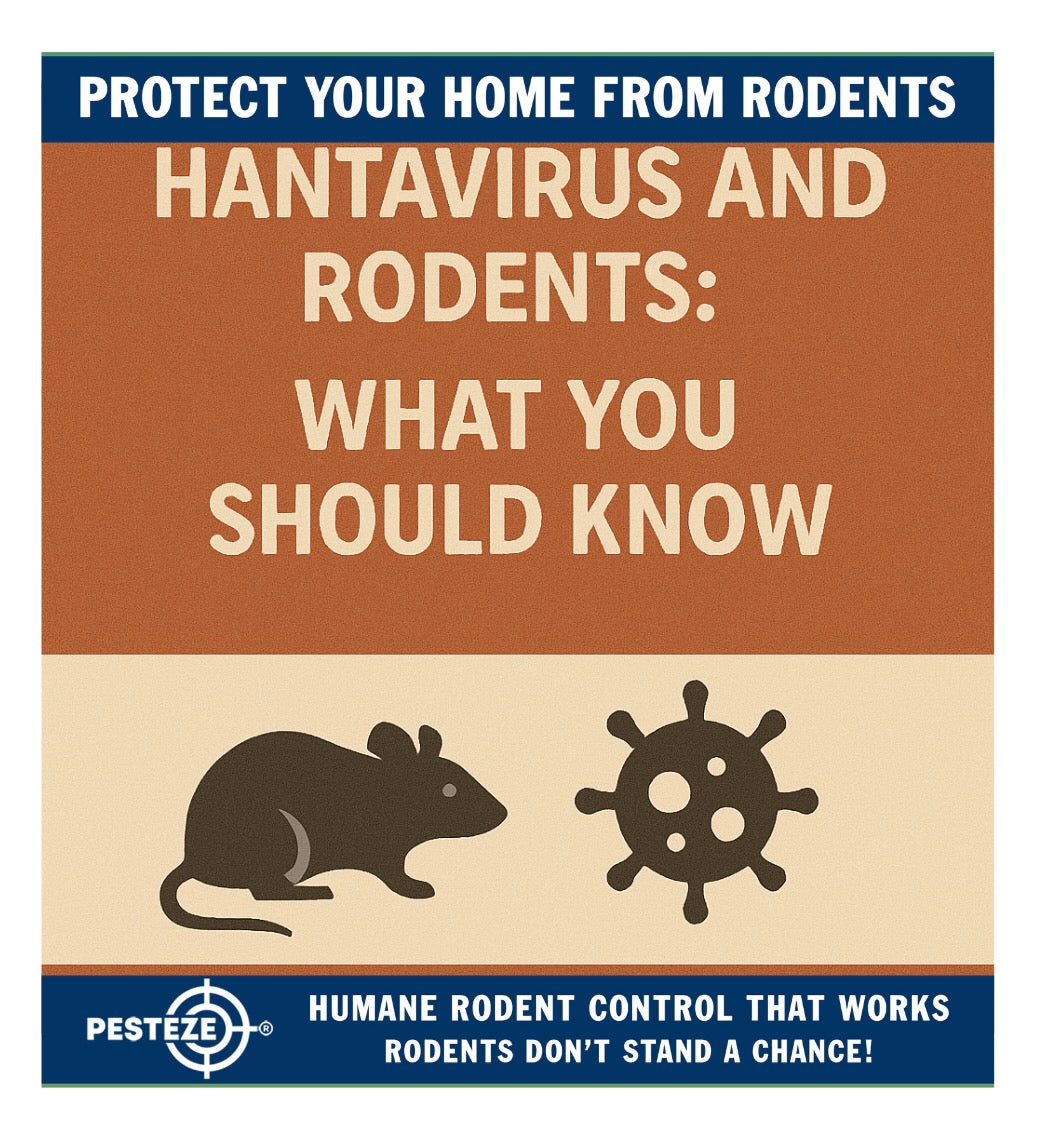HANTAVIRUS AND RODENTS: WHAT YOU SHOULD KNOW

HANTAVIRUS AND RODENTS: WHAT YOU SHOULD KNOW
SUMMARY
Hantavirus is a potentially deadly disease carried by rodents, particularly deer mice. Understanding how it spreads, what symptoms to look for, and how to protect your household is key to staying safe.
FEATURES
-
Rodent Carriers: Mainly spread by deer mice, but other rodents can also be carriers.
-
Transmission Method: Contracted by inhaling dust contaminated with rodent droppings, urine, or saliva.
-
Severe Symptoms: Starts with flu-like symptoms and can progress to serious respiratory issues.
-
High Fatality Rate: Hantavirus Pulmonary Syndrome (HPS) has a mortality rate of around 38%.
-
No Cure or Vaccine: Early detection and supportive care are critical.
-
Prevention Strategies: Includes sealing entry points, safe cleanup of droppings, and rodent control.
DESCRIPTION
Hantavirus is a serious illness primarily spread by deer mice, but other rodent species such as cotton rats and white-footed mice can also be carriers. The disease can lead to Hantavirus Pulmonary Syndrome (HPS), a condition with a high mortality rate if not treated in time. HPS is rare but very dangerous, making it essential for homeowners to understand the risks and take preventative steps.
The virus is most commonly transmitted to humans when they inhale particles from rodent urine, droppings, or nesting materials. This can happen during housecleaning, construction, or simply being in areas where rodents are present. It's important to avoid sweeping or vacuuming rodent-infested areas, as this can stir up contaminated dust into the air.
Early symptoms of hantavirus infection include fatigue, fever, and muscle aches—especially in the thighs, hips, and back. As the illness progresses, it can cause coughing and shortness of breath as the lungs fill with fluid, requiring emergency medical treatment. There is currently no vaccine or specific treatment for hantavirus, so early recognition and hospitalization are crucial.
Preventing hantavirus starts with effective rodent control. Seal any cracks or holes in your home’s foundation, attic, or garage to keep rodents out. Store food securely and clean up crumbs or spills promptly. If you discover signs of rodent activity, clean up droppings with a disinfectant while wearing gloves and a mask—never dry sweep.
Understanding the dangers of hantavirus and how to minimize your exposure can protect your family from this severe and sometimes fatal disease.
- Nikita Gulrajani


Comments 0